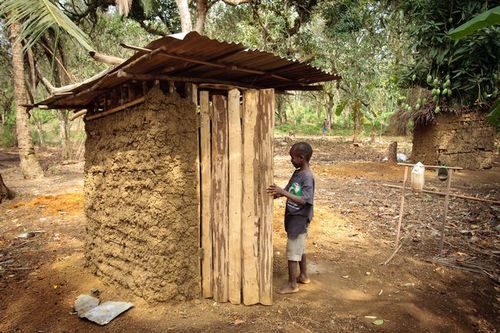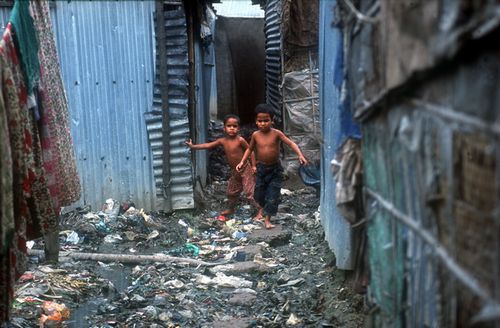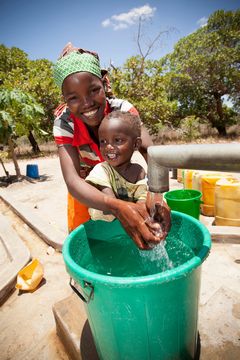December 7, 2016
Poor Sanitation Costs Global Economy 223 Billion Dollars
Keywords: Corporate

Copyright LIXIL Corp. All Rights Reserved.
LIXIL Group, a global leader in housing and building materials products and services, published on August 25, 2016, a report on the adverse impacts of poor sanitation on the global economy. The total economic loss due to poor sanitation was US$223 billion in 2015, a 22% increase from 2010. This loss constitutes, on average, 0.9% of the GDP of surveyed countries affected by poor sanitation, a slight decrease from 1% in 2010.
Of the total global economic loss incurred by poor sanitation, human loss from premature death accounts for over half, or 55%. In Africa alone the figure is as high as 75%; the remaining 25% includes the cost of treating illness, declining productivity due to illness, and time spent searching for a toilet or privacy.
The report revealed that the Asia Pacific region is the worst affected by inadequate sanitation, with the economic loss amounting to 172.3 billion dollars, making up over 75% of the global loss. By country, India recorded by far the worst economic loss, 106.7 billion dollars in 2015, equivalent to 5.2% of its GDP, making up almost half of the global economic loss.

Copyright LIXIL Corp. All Rights Reserved.
Africa, too, faces severe sanitation problems, leading to a 19.3 billion-dollar loss in 2015, up 24.5% from 15.5 billion dollars in 2010. This amount is equivalent to 0.9% of Africa's GDP, higher than the average among surveyed nations excluding India. Moreover, all 10 nations with the highest economic losses relative to GDP are in Sub-Saharan Africa and South Asia.
The report makes the following three suggestions as priorities for providing all people with sustainable sanitation solutions:

Copyright LIXIL Corp. All Rights Reserved.
- Make sanitation a political priority: Governments needs to address sanitation issues as part of their national strategies, with the aim of achieving the Sustainable Development Goals (SDGs.)
- Innovation: Sanitation facilities in developed nations often call for significant amounts of energy, water and land, as well as financial resources to build and operate systems. Therefore, innovation is crucial when designing solutions that meet the unique conditions in regions where adequate sanitation facilities are not already in place.
- Collaboration: Providing sanitation solutions to low-income people requires surmounting a number of complex challenges. Collaboration between the public and private sectors and with local communities is essential for sharing knowledge, taking advantage of new technologies, and creating innovations.
The study was carried out by the LIXIL Group in collaboration with WaterAid, an international NGO, and Oxford Economics, a research institute headquartered in the UK. Working with various partners, the LIXIL Group has been developing affordable, effective solutions to the sanitation problems of the world's most impoverished regions. It has pledged to improve sanitation for a hundred million people by the year 2020.
Related
"JFS Newsletter"
- 'Good Companies in Japan' (Article No.4): 'Eightfold Satisfaction' Management for Everyone's Happiness
- 'Good Companies in Japan' (Article No.3): Seeking Ways to Develop Societal Contribution along with Core Businesses
- "Good Companies in Japan" (Article No. 2): Seeking "Happiness" for All Stakeholders
- "We Sell Services, Not Products": Using LCA to Measure the Environmental Benefits of Nihonkai Gas's Heater Rentals
- "Good Companies in Japan" (Article No. 1): Valuing Employee Happiness and Trust
Related
"Popular Articles"
- Japanese Organic Produce Supplier Wins 2014 Award of Excellence from Food Action Nippon
- DBJ Launches Green Building Certification for Residential Developments
- Kawasaki City and Toshiba to Jointly Demonstrate Renewables and Hydrogen-Based Off-Grid Energy Supply System
- LIXIL Establishes Women Empowerment Plan Called WeDo Action
- NEC Develops Software for Storage Batteries, Helping to Improve Next-generation Power Systems


